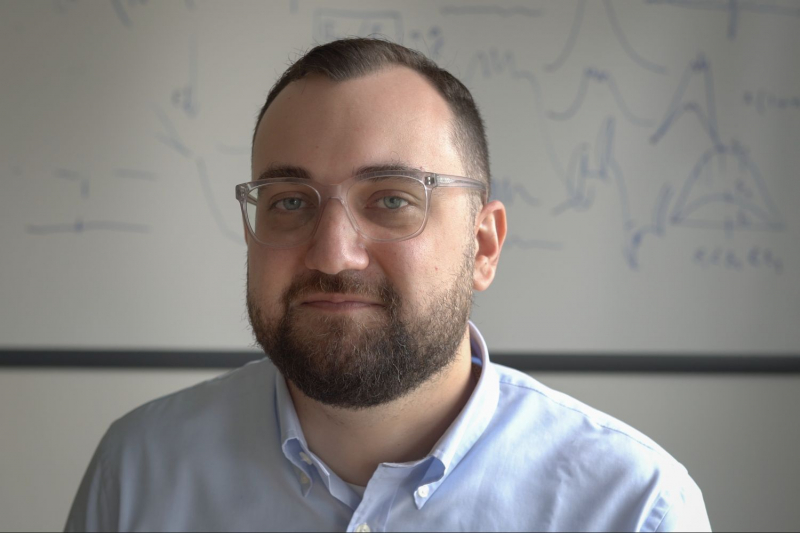A graduate from the Cullen College of Engineering has received a first round of funding from the National Institutes of Health FastTrack program for research into chronic pelvic pain management, with close to $2 million potentially available as the research continues.
Nicholas Dias, Ph.D., is a research scientist working for HillMed, Inc., a Houston-based medical research firm. Dias also graduated from the University of Houston with a B.S. in 2015 and a doctorate in 2020, both in Biomedical Engineering.
His proposal, “An Novel Medical System for Quantitative Diagnosis and Personalized Precision Botulinum Neurotoxin Injection in Chronic Pelvic Pain Management,” was chosen for $251,964 in Phase 1 funding, for one year. As long as milestones are hit for Phase 1, an additional $1.7 million for three years of funding will be released.
Dias said his research at the firm centers on diagnosing and treating pelvic floor dysfunctions that complicate chronic pelvic pain (CPP).
“Specifically, we are developing a device that maps the activity of the deep pelvic muscles to help clinicians better characterize and locate pelvic muscle over-activity,” he said. “We expect that this characterization will allow physicians to target treatment to the source of the pelvic floor dysfunction for each specific patient. These personalized treatment regimens should lead to improved patient outcomes.”
For Dias, this need for personalized treatment regimens was part of a technical challenge that got him and kept him involved in the research.
“CPP is persistent pain in the lower abdomen or the pelvis without an obvious ongoing disease process. The causes of CPP are multifactorial with many potential underlying sources,” he said. “Each patient with CPP may present with a unique combination of pain sources. It was this complexity that interested me the most. By leveraging advancements in high-density electromyographic signal acquisition and processing, I believe that we can provide clinicians with a better picture of each patient’s pelvic floor functional status to allow clinicians to tailor treatments to each individual patient. I expect that our contributions can help people with CPP receive effective care faster to alleviate their debilitating pain.”
Dias noted that several people – at UH and other organizations – have been instrumental in his research pursuits.
“I could go on and on in response to this,” he said, laughing. “There are so many people who had a positive impact on my academic career. I must first recognize my Ph.D. advisor, Dr. Yingchun Zhang, for giving me the tools, knowledge, and most importantly, the encouragement to keep searching for answers to these pressing questions.”
“My academic research would not have been possible without generous clinical knowledge from Dr. Christopher Smith at Baylor College of Medicine, and Dr. H. Henry Lai and Dr. Tracy Spitznagle at Washington University School of Medicine. These clinicians are world-renowned experts in chronic pelvic pain and generously provided this expertise during my Ph.D. studies. Finally, I must recognize Dr. Metin Akay for his gracious support, advice and enthusiasm for research, which piqued my early interests in biomedical engineering.”
The first portion of Dias' research began in September. The end date for the first portion of the project is August 2022.
The grant is part of the Helping to End Addiction Long-termSM Initiative, or NIH HEAL InitiativeSM. It is an aggressive, trans-NIH effort to speed scientific solutions to stem the national opioid public health crisis. Launched in April 2018, the initiative is focused on improving prevention and treatment strategies for opioid misuse and addiction, and enhancing pain management. For more information, visit here.
